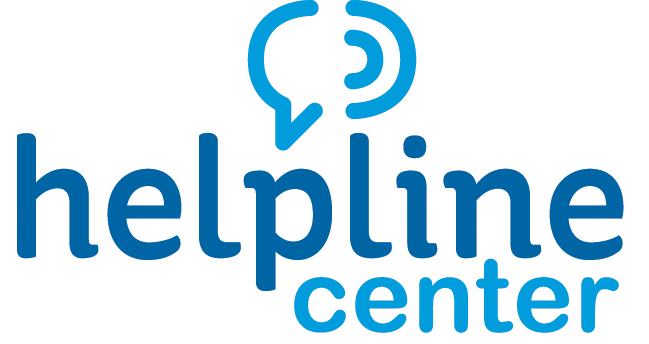Trainings
The Helpline Center provides a variety of mental health and suicide prevention trainings in South Dakota. We invite you to attend an upcoming training or schedule a training today to learn the steps of identifying and responding to mental health and suicide.
For questions, please email training@helplinecenter.org.
QPR stands for Question, Persuade and Refer, three steps anyone can learn to help prevent suicide. Just like CPR, QPR is an emergency response to someone in crisis and can save lives. In this one to two-hour training, participants first learn about the nature of suicidal communications, what forms these communications take, and how they may be used as a stimulus for a QPR intervention.
QPR offers specialty modules in: School Health Professionals; Farmers; School Setting; Native American; Late Life Suicide; Residential; Law Enforcement & Emergency Service Professionals; and Youth.
QPR is approved by the South Dakota Board of Education Standards as meeting the guidelines for required Youth Suicide Awareness and Prevention Training.
Upcoming Virtual QPR Trainings- Click to sign up now!
Mental Health First Aid teaches you how to identify, understand and respond to signs of mental illness and substance use disorders. This training gives you the skills you need to reach out and provide initial support to someone who may be developing a mental health or substance use problem and help connect them to the appropriate care.
Two Learning Options
Blended Learning. After completing a 2-hour, self-paced class, First Aiders will participate in a 4-hour, in-person, Instructor-led class.
In-person. First Aiders will receive their training as an 8-hour, Instructor-led, in-person course.
Who Should Take it
- Employers
- Police officers
- Hospital staff
- First responders
- Faith leaders
- Community members
- Caring individuals
What it Covers
- Common signs and symptoms of mental illness
- Common signs and symptoms of substance use
- How to interact with a person in crisis
- How to connect the person with help
- NEW: Expanded content on trauma, addiction and self-care
Mental Health First Aid offers specialty modules in: Higher Education; Military Members, Veterans & Their Families; Public Safety; Older Adults; and Rural Communities
Upcoming In-Person MHFA Trainings- Click to sign up now!
Youth Mental Health First Aid teaches participants how to identify, understand and respond to signs of mental illness and substance use disorders in youth. This 6.5-hour training gives adults who work with youth the skills they need to reach out and provide initial support to children and adolescents (ages 6-18) who may be developing a mental health or substance use problem and help connect them to the appropriate care.
YMHFA is approved by the South Dakota Board of Education Standards as meeting the guidelines for required Youth Suicide Awareness and Prevention Training.
Two Learning Options
Blended Learning. After completing a 2-hour, self-paced online class, First Aiders will participate in a 4-hour, in-person, Instructor-led class.
In-person. First Aiders will receive their training as a 6.5-hour Instructor-led in-person course.
Who Should Take it
- Teachers
- School staff
- Coaches
- Camp counselors
- Youth group leaders
- Parents
- People who work with youth
What it Covers
- Common signs and symptoms of mental illness in this age group, including
- Anxiety
- Depression
- Eating disorders
- Attention deficit hyperactive disorder (ADHD)
- Common signs and symptoms of substance use
- How to interact with a child or adolescent in crisis
- How to connect the person with help
- NEW: Expanded content on trauma, addiction and self-care and the impact of social media and bullying
Upcoming In-Person YMHFA Trainings- Click to sign up now!
In this training session, participants will delve into the crucial aspects of suicide safety planning and means safety. Designed to equip individuals with the knowledge and skills needed to provide effective support, this training focuses on fostering a safer environment for those at suicide risk.
Safety Planning:
Safety planning stands as a key practice in mental health care and suicide prevention. It is a personalized, proactive strategy designed to guide individuals through moments of crisis and mitigate the risk of self-harm or suicide.
Means Safety:
Means safety is a critical component of suicide prevention that focuses on limiting access to lethal means, thereby reducing the risk of self-harm and suicide. It acknowledges that restricting access to potentially harmful items or methods can play a pivotal role in preventing impulsive and irreversible actions.
Applied Suicide Intervention Skills Training (ASIST) is for anyone—regardless of prior experience—who wants to be able to provide suicide first aid. Shown by major studies to significantly reduce suicidality, the ASIST model teaches effective intervention skills while helping to build suicide prevention networks in the community. This is a 2-day training.
ASIST is approved by the South Dakota Board of Education Standards as meeting the guidelines for required Youth Suicide Awareness and Prevention Training.
Upcoming In-Person ASIST Trainings- Click to sign up now!






